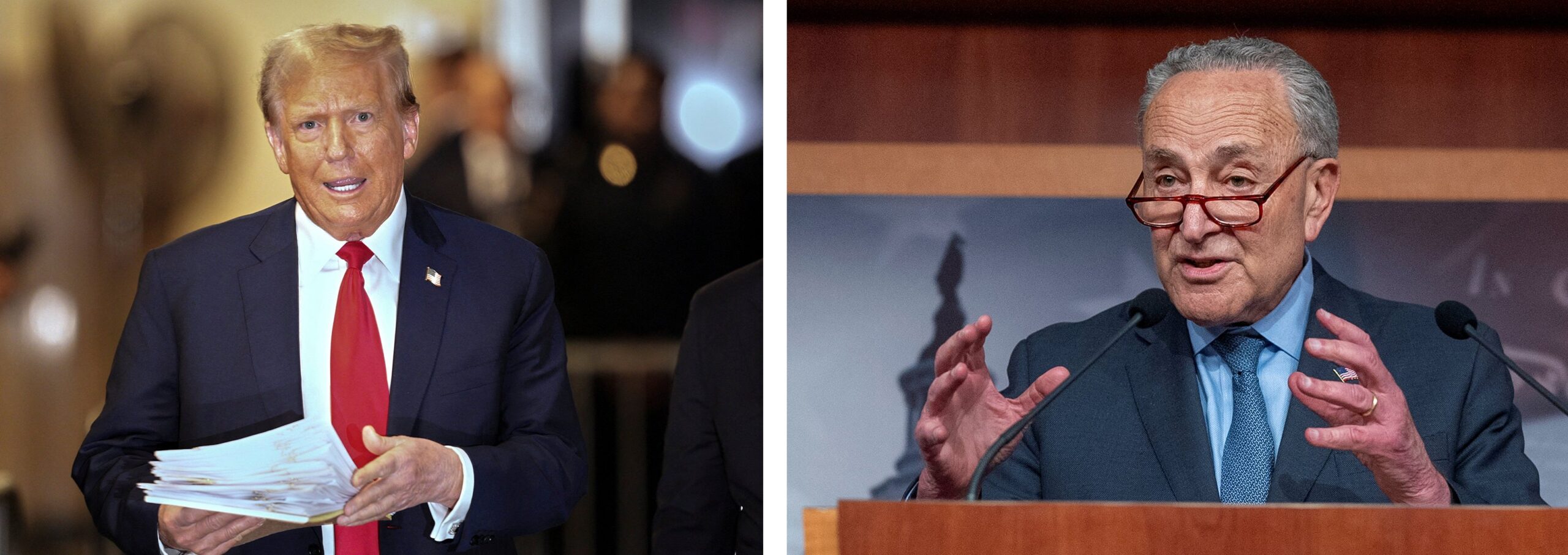
By Kate Scanlon
WASHINGTON (OSV News) — Contraception is becoming a campaign issue in the 2024 election.
Former President Donald Trump, the presumptive Republican presidential nominee, made comments suggesting openness to regulations on contraception before backtracking on May 21. The next day, Majority Leader Chuck Schumer, D-N.Y., said he plans to hold a vote in June on legislation that would protect access to contraception nationwide.
Polls consistently show most U.S. adults support access to contraception, and Democrats have sought to tie the issue of contraception to abortion restrictions in an election year. The Catholic Church opposes artificial methods of birth control, but supports couples using natural fertility-based awareness methods for either achieving or postponing pregnancy as an exercise of responsible parenthood.
In an interview with KDKA-TV in Pittsburgh, Trump was asked if he supported “restrictions on a person’s right to contraception” and gave a vague answer.
“We’re looking at that, and I’m going to have a policy on that very shortly,” Trump said. “And I think it’s something that you’ll find interesting, and it’s another issue that’s very interesting, but you will find it, I think, very smart. I think it’s a smart decision.”
Pressed by the interviewer, Jon Delano, for clarity, Trump replied, “You know, things really do have a lot to do with the states, and some states are going to have different policy than others.”
Trump’s comments were widely reported and criticized by the Biden-Harris campaign.
“Women across the country are already suffering from Donald Trump’s post-Roe nightmare, and if he wins a second term, it’s clear he wants to go even further by restricting access to birth control and emergency contraceptives,” Biden-Harris spokesperson Sarafina Chitika said in a statement provided to The Associated Press.
Trump later took to his social media website Truth Social to state “I HAVE NEVER, AND WILL NEVER ADVOCATE IMPOSING RESTRICTIONS ON BIRTH CONTROL, or other contraceptives,” arguing it was a “Democrat fabricated lie.”
“I DO NOT SUPPORT A BAN ON BIRTH CONTROL, AND NEITHER WILL THE REPUBLICAN PARTY!” he added.
Meanwhile the legislation the Senate will consider is the Right to Contraception Act, which proponents claim would codify the right to contraception established by the 1965 landmark Supreme Court decision, Griswold v. Connecticut. It is expected to be blocked in the closely divided Senate, where most Republicans appear poised to oppose it.
In a guide about the church’s teaching on issues including contraception, the National Catholic Bioethics Center describes contraception as “any action that is specifically intended, whether as an end or as a means, to prevent procreation either before, at the moment of, or after sexual intercourse.”
While contraception “is never to be directly intended,” the guide states, its use for “therapeutic means needed to cure diseases is not illicit, even if it results in a foreseeable impediment to procreation — provided the impediment is not directly intended for any motive whatsoever.”
The Catechism of the Catholic Church teaches that unlike contraception, “the methods of birth regulation based on self-observation and the use of infertile periods, is in conformity with the objective criteria of morality.” These are known as fertility-based awareness methods of family planning; the methods are sometimes collectively referred to as natural family planning.
